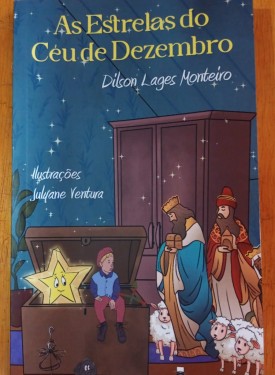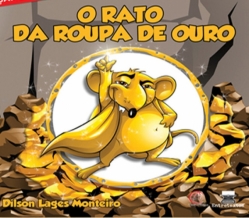THE AMAZON
 Por Rogel Samuel Em: 29/03/2021, às 21H32
Por Rogel Samuel Em: 29/03/2021, às 21H32

Twenty-three: The End - Translation by Christopher Schindler
Years later, when Antonio Ferreira was elected Governor and an alliance had been made with Abraham Gadelha, Benito Botelho was then indeed unemployed.
I see him in the Bacarau drinking away the last of the money earned from writing a speech for Deputy Fonseca Varella. Benito was drinking it away while listening to the river peddler Saraiva Marques who was there in the company of a short, nasty, thin little mustached man, Maneco Rastos, son of Conchita del Carmen.
Maneco, meanwhile, was saying that his father was the famous son of Pierre Bataillon. Maneco drank a lot, he had a tab at the Bacarau and was losing credit. This was his favorite place because he could avail himself of master Benito's erudition.
But Benito was in decline and Maneco could not help him. Benito Botelho was drinking more and more; without his aunt, he was more thin, pale and shaky. He fell down in the street and had lost his former luster. Drunk, he said nothing coherent anymore, dulled, inert.
Then the river peddler Saraiva Marques said:
“Do you know what happened to Zequinha Bataillon?”
Benito Botelho in his cups raised his head, looked at the old man but did not see him.
“After he had disappeared for ten years, he showed up on the Praia do Cuco from where he left: he was crazy. Maria Caxinauá found him and hid him for years. One day he got worse and she had to tie him up. He still survived tied up like that for several years. When he died, she buried him on the banks of Hell's Bayou...”
But what seemed like a tall tale was the truth. Saraiva kept quiet. There was silence. It was death.
Then Benito got up with difficulty and started to recite a poem of Álvaro Maia, called Night.
The night is hunger-giving. Black chasms are rising...
Benito recited from memory. The sonority of the phrases echoed in the surroundings. A sensitive man, Maneco was deeply affected by these verses which he knew well. The words came out of his alcoholic mouth booming like thunder.
A young prostitute entered the Bacarau and sat down at a table where there were leftovers from a meal. A cat was licking itself on the counter and cigarette smoke enveloped it. The pitched voice of a drunk Benito continued:
In the lugubrious unfolding of eternal tragedies …
That morning Abraham Gadelha was wounded by a bullet fired by an unknown person assumed to be on the order from his ex-fellow party member Ribamar de Souza. The whole city had talked about this, but the shot was forgotten at the Bacarau. Gadelha survived.
In the solemn silence there are magic and rituals...
In the confusion of lives and debris are seen
Consolations from God, hatreds from Satan.
Benito was down-and-out. He had had pancreatitis and could not continue drinking.
His fingers shook in the air and already he saw nothing.
Something was dying.
That was when the poet Lopes, who signed himself Aflopes, entered, towering, athletic. He was a strong young man, friendly and talented.
“Hey, Lopes!”, Maneco shouted seeing him. He approached the assembly.
How the moonlight terrifies! how it shines is so sadly!
Lopes waited for the poem to end. Benito was forgetting verses, confusing stanzas.
When the Master was finished, the poet Lopes spoke:
“I am the bearer of sad news.”
Silence.
“Do you know who has just died?”
The cat jumped off the counter.
“Frei Lothar.”
Blinking, proud, heavy with alcohol, eyes closed, Benito rose from his chair that very instant, on foot, not looking at anyone, motionless.
Then he opened his dull eyes and said, leaning on the table:
“Gentlemen...dear Gentlemen...One of the greatest men this earth has known has just died...Frei Lothar spent his whole long life in the arduous task of fighting against misery, against diseases, against Amazonian ignorance...”
He did not continue, but fell onto the table breaking a glass of cachaça into pieces on the floor. He died five days later and was buried under an unmarked cement stone in the Major Gabriel cemetery. A few years after that, Ribamar de Souza and Diana Dartigues were separated. But at this point I am running out of breath as I come to the end of this my story; day is dawning and coming upon us and it is time for me to leave you, my friend, I am still here who have seen everything that was to been seen and, in spite of this, your make-believe Narrator who is at his end is still alive until now to bring the matter to a close. There is no more, it was just as I told it - this story fashioned and spoken by me; those things took place according to what I, the Narrator, have said. Good-bye, my son: remember me your Narrator who will be alive no longer and do not forget this very fine story of the lover of the Amazon. The Amazon is a particularly fantastic place which is also at its end, and when you dream, dream of Hell's Bayou going inside that marsh, passing by the Manixi Palace of long memory, of the young Zequinha Bataillon. Remember Maria Caxinauá, the big fellow Paxiúba, Benito Botelho, Pierre Bataillon at the piano and Ifigênia Vellarde. Do not forget Antonio Ferreira, Ivete the Maacu, Conchita del Carmen, Juca da Neves and his wife Dona Constança and the Commander Gabriel Gonçalves da Cunha. But also, Frei Lothar and Ribamar de Souza who is leaving now as this your Narrator and disappearing at this point.












